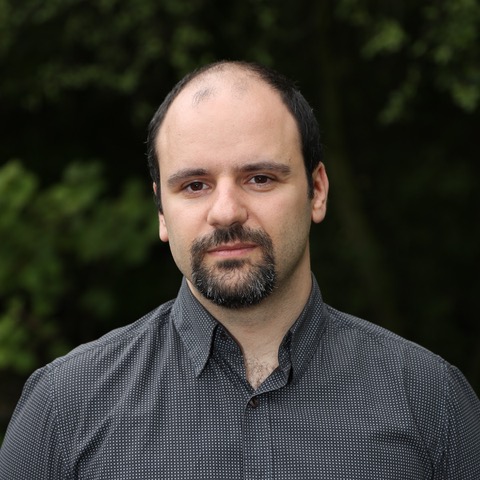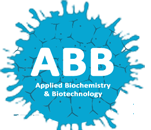
Dr. Ioannis V. Pavlidis
Department of Chemistry, University of Crete, Voutes University Campus, GreeceSpeech Title: Improving transferases for industrial applications via protein engineering
Abstract: Protein engineering has emerged as a methodology to easily evolve biocatalysts, rather than screening in nature for the perfect candidate for the desired process. While in previous times the bioprocesses were designed around the limitations of the available enzyme, nowadays we can efficiently design tailor-made biocatalysts, based on the needs of the process. The class of transferases (EC 2.x.x.x) is very interesting category of enzymes, as they can transfer variable groups in a very specific way, exploiting the enatio- and regio-selectivity expressed from the respective enzymes. This leads to less byproducts and facilitates the downstream process of isolating the final product. Herein we are going to focus on two transferase groups, as example, namely the aminotransferases and the methyltransferases. Pharmaceutical industry has a continuous interest on synthetic ways towards optically pure amines, as they are significant building blocks for the synthesis of active pharmaceutical ingredients. Typically the amine transaminases are very specific for the synthesis of optically pure primary amines, due to the geometry of the binding pocket. However, as small substituent of the substrate (a ketone) is typically recognized only a methyl group, and everything larger is not accepted from these enzymes. Specific examples of our group will be presented on rational and semi-rational design of (S)- and (R)-selective transaminases for the aceptance of bulkier, and more industrially relevant, substates. Methyltransferases on the other side, possess an immense synthetic potential by catalysing regioselective methylation of nucleophilic atoms on small molecules, that has yet to be exploited. The transfer of a methyl group has a significant impact on the biological activity of the enzymes. Herein our results will be presented on the protein engineering of specific O methyltransferases to understand the structure-function relationship and to rationalize the substrate scope and regioselectivity design. Moreover, to expand their synthetic potential, protein engineering was performed in halide methyltransferase to enable the synthesis of S adenosyl-L-methionine, the universal methyl donor, and subsequently the transfer of groups larger than methyl. The specific examples highlight the potential of protein engineering on the design of tailor-made biocatalysts and that with the current tools of bioinformatics and molecular biology we can efficiently guide the evolution of enzymes.
Biography: Assist Prof. Ioannis Pavlidis studied at the Department of Biological Applications and Technologies of the University of Ioannina (GR), and he was also awarded his PhD from the same institution in 2011, for his work on immobilization of hydrolases onto nanostructured systems. After his post-doc at the Department of Biotechnology and Enzyme Catalysis, University of Greifswald (DE) between 2011-2015, he got an junior group leader position at the University of Kassel (DE) where he established the biotechnology group at the Institute of Biology. In 2018 he moved back to Greece, as he was offered an Assist. Prof. position at the Department of Chemistry of the University of Crete, where he was recently (2021) tenured.
Dr. Pavlidis has more than 40 papers in international peer review journals, with more than 1200 citations and an h-index of 18, and he was invited lecturer in several conferences and Universities. He is reviewer for several national research offices and for more than 60 peer review journals. His research interests are on applied biocatalysis, protein engineering, enzyme technology, enzyme identification and circular economy.

